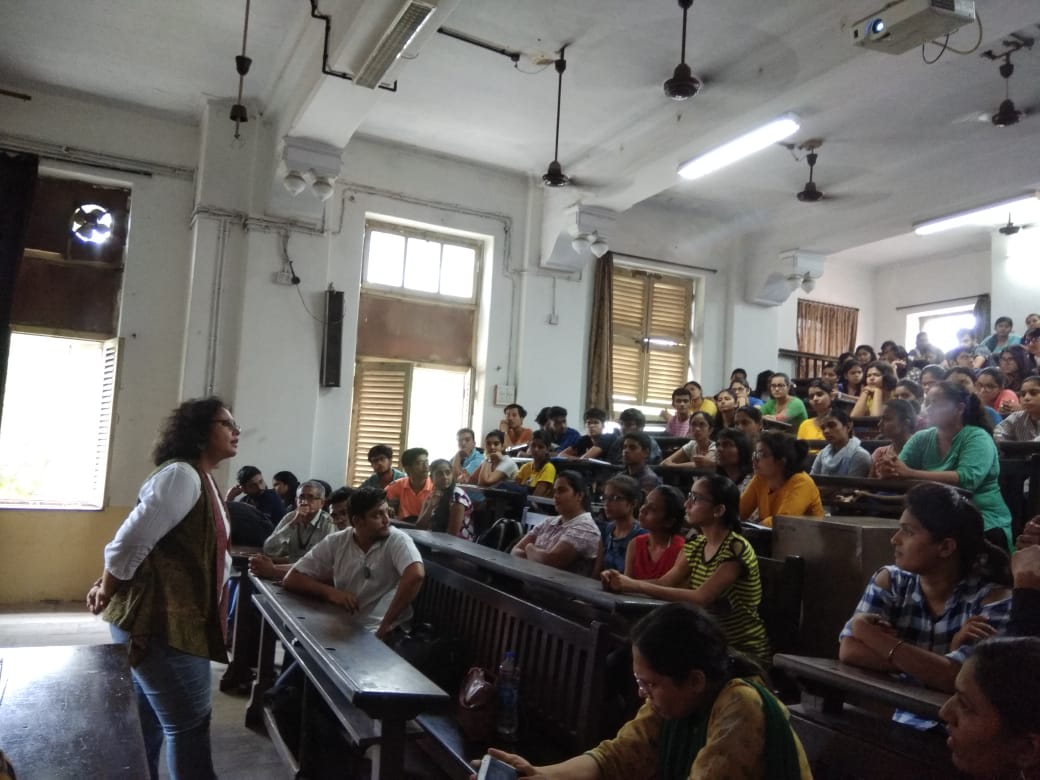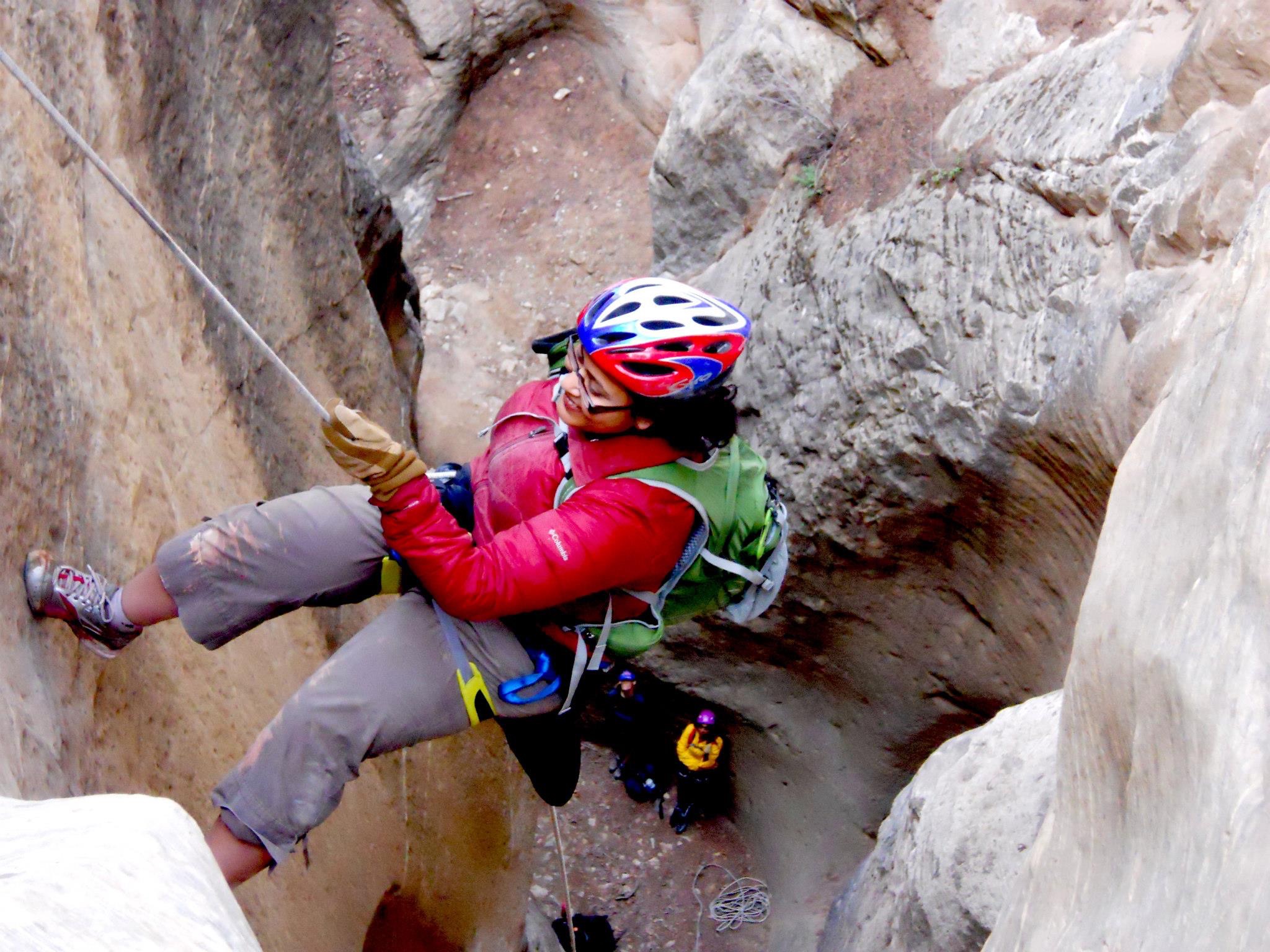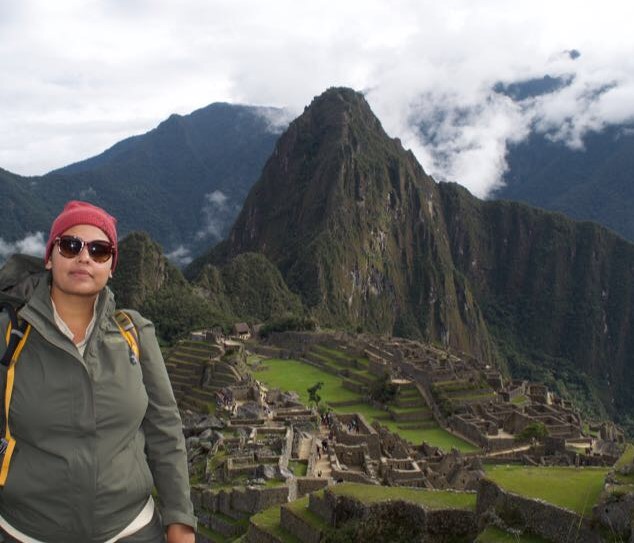
Shaili Johri is a Postdoctoral Fellow and marine conservationist, working as a faculty member at San Diego State University. She's also a recipient of an SCB Marine Section grant, for her work on shark conservation in India.
We wanted to hold a Q & A with Shaili to learn more about her and her incredible work, and hear about what advice she has for future conservation biologists.
Tell me a bit about yourself.
I am a conservation biologist interested in developing genomics based non-invasive tools for monitoring wildlife populations. I closely engage with communities through science communication and co-develop sustainable conservation strategies for wildlife populations.I am originally from India, where I studied until my masters and then moved to the US for a PhD in genetics. I now live in San Diego and work on marine conservation as a faculty at San Diego State University.
When I am not working you will find me travelling, hiking, swimming the ocean, making pottery or cooking and spending time with my family.
When did you know you wanted to pursue a career in conservation? What made you think you could make a difference?
I have always loved animals and wildlife and always wanted to make a difference in the field. However, it was after I completed my PhD in genetics (of fruit fly neurons!)that I started identifying questions in wildlife biology that needed to be answered and that too using genetics tools. About making a difference, I worked closely and followed career paths of a few of my role models like Dr. Samuel Wasser (UW), Dr. Moira Brown (NEAQ), Katie Matthews (Oceana/SCB) and Dr. Elizabeth Dinsdale (SDSU), and these individuals strengthened my belief that science based conservation can be a powerful tool for wildlife conservation. We just need to keep going!
Shaili giving a seminar to fisheries students about the state of shark fisheries in India,
the world and how they could contribute to sustainable shark fisheries.
What's your favorite tip for someone in our industry (conservation biologists)?
Students interested in conservation often try to build a career based on conservation. I would advise them, especially in the current political climate, to base a career in science and science policy, and through these engage in science communication and conservation. These choices will go a long way in ensuring a successful career for the students and in benefiting conservation goals.
Is there any advice you would give to someone starting out in your chosen career?
1.Gain experience working in all fields that interest you before committing to a career and then make an informed choice. Try it all with no reservations!
2.Gain expertise in a state of the art methodology not a species, this will ensure your skills are always in demand and can be applied to protect a vast range of wildlife species.
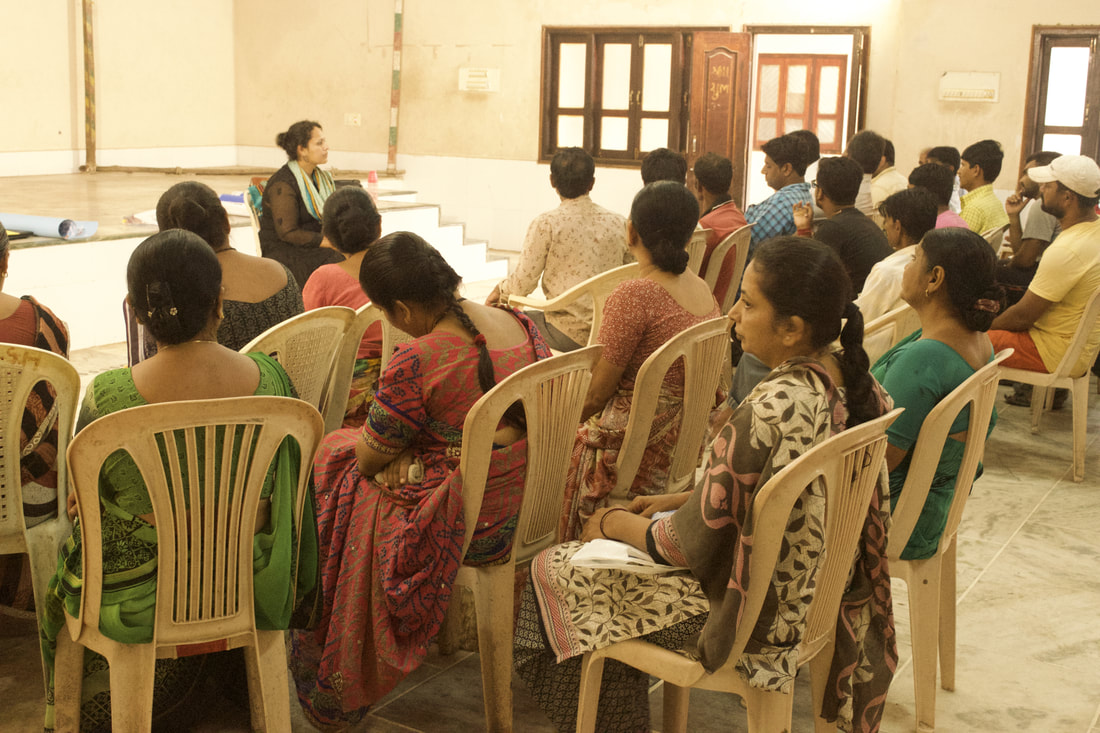
Shaili and Anjani meeting with fisher women in Porbandar, India to co-develop sustainable shark fisheries.
Did you have any life-changing experiences that put you on the path that led you to be doing what you're doing today? Tell me about them.
The numerous encounters with apex predators like wolves, bears and tigers during my wildlife excursions in Yellowstone, Alaska and India during my formative years made me appreciate wildlife and the importance of wildlife conservation. Since childhood I have always been fascinated by the ocean and its mysteries. The first dive of my life was in the Caribbean where I was encircled multiple times for ‘inspection’ by a beautiful nurse shark and this set me on a path where I wanted to know more and more about the ocean. Watching ‘Black Fish’ was a pivotal tipping point that pushed me to commit to a career in conservation.
Support from the SCB-Marine community has been instrumental in empowering me to pursue the conservation research projects I am undertaking today. One of my projects on shark conservation in India received seed funding through the SCB-Marine small grants twice in a row and this project has helped fill a vital knowledge gap about one of the largest shark fishing nations. My work, supported by this grant, has contributed to the reduction of data deficiencies with respect to sharks and has helped build bridges between fishing communities and researchers. The community support, and journalistic and peer network provided by SCB through IMCC and ICCB meetings has helped me connect with an amazing network of peers and collaborators, who have also bolstered my work in India. One of my students, Anjani Tiwari, who conducted much of the sampling and socioeconomic surveys in India for the shark conservation project, presented her work at IMCC5 through a diversity travel grant. Anjani received much praise and support from the SCB-Marine community for her outstanding research and this experience at IMCC5 will go a long way in shaping her forthcoming research career.
SCB’s emphasis on diversity is an important source of strength and empowerment for researchers like myself and has had a big influence in shaping my career.
My research career has evolved over the past few years where interacting with people whose lives are entwined with those of endangered wildlife has made me realize that conservation needs to be rooted in environmental justice. Teaching students and trying to answer their profound questions about wildlife and human wildlife conflicts, is an immersive experience and constantly keeps me on my toes, making sure I am moving in the right direction.
What are the skills you need to have to do the type of work you do? Where and how did you learn these skills?
Genetics and genomics knowledge are at the forefront of conservation science. I learnt these methods during my PhD and post doc.
What do you lost most about what you do?
Satisfaction of ‘trying my level best to make a difference for wildlife.
Being in the ocean! Discovery!
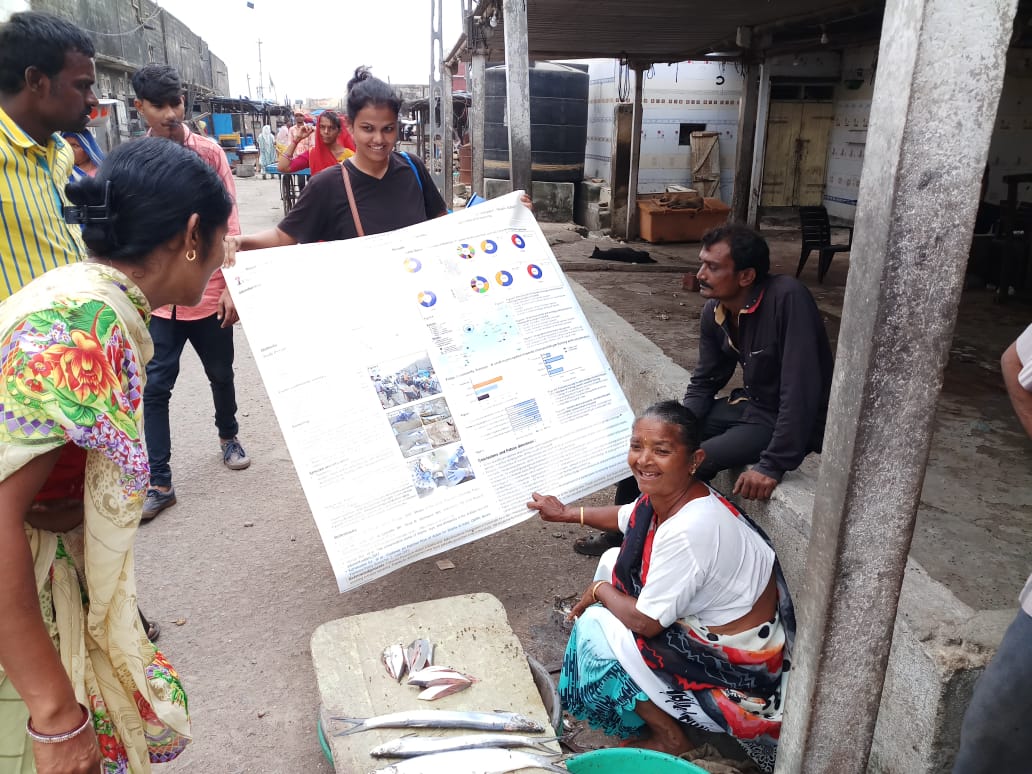
Anjani, explaining her research and analyses about shark fisheries to fishing communities in India, the largest shark fishing region in the world.
We collaborate with fishing communities in collecting our biodiversity and socio-economic data sets
and take this data back to the communities to co-develop sustainable fisheries solutions.
What's next for you in your work? What are you looking forward to?
Working closely with communities for mainstream application of science based conservation. Empowering students in environmental stewardship.
Looking for a tenure track faculty position or working with a non-profit conservation.
What are you happiest doing when you're not working?
I am the happiest spending time outdoors and spotting wildlife! I enjoy Swimming in the ocean, chasing leopard sharks in San Diego, making pottery, travelling and experiencing cultures and cuisines.
